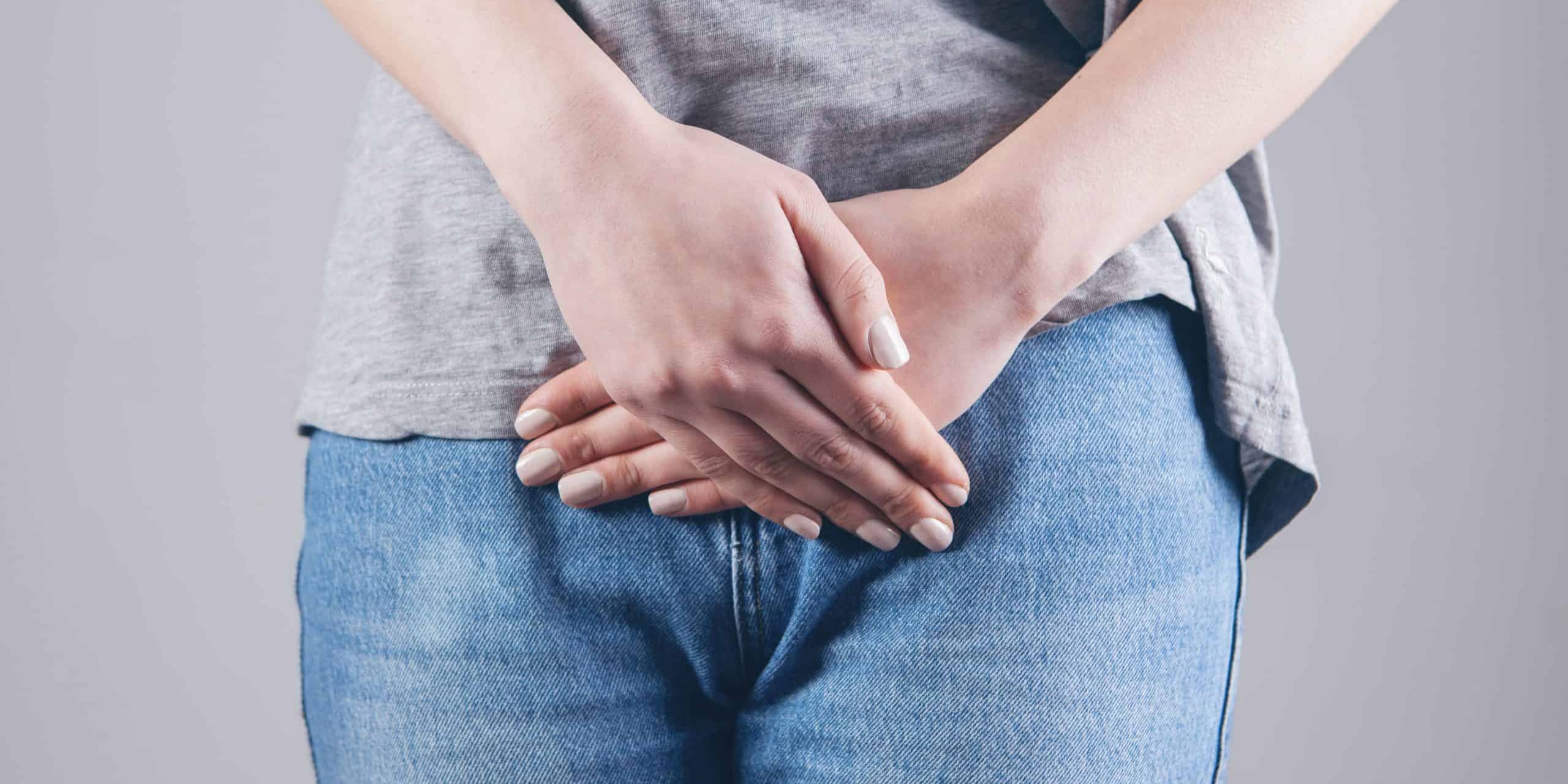Prevention

There are two main types of incontinence: Stress incontinence and urge incontinence. Often urinary incontinence happens due to weakened pelvic floor muscles, but pelvic floor tightness can also cause leakage. If you are unsure about the source of your incontinence, it is best to check with a medical professional.
Maintaining a healthy and active lifestyle can help urinary incontinence. Here are 4 things you should do:
- Pelvic floor exercises (Kegels) pelvic floor exercises can help you better control your bladder.
- Stay hydrated by drinking plenty of water throughout the day.
- Eat a healthy diet. Choosing fiber-rich foods like whole grains, fruits, and vegetables are helpful to avoid constipation which puts strain on pelvic floor muscles.
- Don’t smoke, and if you do, quit. Smoking irritates the bladder! A chronic cough puts pressure on your bladder, contributing to incontinence.
Kegels To Prevent Leakage:
In the same way, people work out to build strength in their legs and arms; exercises can strengthen your pelvic floor muscles. Pelvic floor exercises, also known as “Kegels,” are a great way to strengthen the muscles that support your bladder, and the more you do it, the better. It’s important that they be done regularly and correctly for maximum benefit! Strengthening pelvic floor muscles can reduce feelings of urgency and the need for frequent trips to the restroom.
Stay Active!:
The pelvic floor is part of your deep core muscles. They contract simultaneously to provide support and stability to your spine and organs. Strengthening your core is an essential part of preventing and managing incontinence.
Drink Plenty Of Water!:
It sounds counterintuitive, but those with urinary incontinence should aim to drink more water. Some people are tempted to reduce the amount that they consume to avoid more trips to the bathroom. In fact, this can make things worse because when you don’t replace fluids lost via urination (through drinking less), your urine will be more concentrated and irritating to the bladder.
Tips To Prevent Dehydration:
- Do not wait until you feel thirsty to have a drink of water! Drink about four eight-ounce cups per day. It’s better to reach these amounts through frequent sipping instead of one or two big helpings in order not to overwhelm your bladder with too much liquid at once.
- Limit your daily intake of carbonated drinks, caffeine, and alcohol because they can cause bladder irritation.
Drink Enough Fluid:
You can check if you are drinking enough fluid by looking at the color of your urine. For example, suppose it’s pale yellow (except for first urination, which may be more concentrated). In that case, that means everything is going well with hydration levels! Keep in mind, some medications, vitamins, and food items will affect this- so don’t rely on just one test alone.
Fiber-Rich Foods To Avoid Constipation:
Your bowels are near your bladder. So if you’re constipated, it could cause an excess of pressure on that area and cause you to feel like you need to urinate more frequently than usual.
Add More Fiber To Your Diet:
- Eat plenty of wholegrain cereals (such as porridge, brown rice, and pasta) rather than highly processed or refined food.
- Eat fruit (at least two pieces) daily along with five servings of vegetables.
- Drink up to 2 liters of fluid per day because dietary fiber needs water in order for your poop not to become too firm.
Quit Smoking:
Studies have shown that there is a correlation between smokers and urinary incontinence. Over time, many smokers develop a chronic cough which can put tremendous pressure on the pelvic muscles resulting in a weakened bladder and increasing chances of incontinence. Smoking is also an irritant to the bladder and has been linked to bladder cancer.


